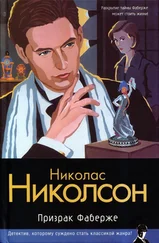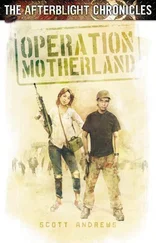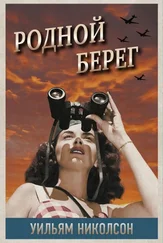‘Nothing good,’ he says.
‘What does Gandhi say?’ Larry asks.
‘Ah, Gandhi. He of course wants a united India.’
‘I’ve always had the idea that Gandhi is one of the few men alive who truly believes in the power of goodness.’
‘The power of goodness?’ says Tarkhan, raising his eyebrows. ‘The mahatma is a very holy man. But whether goodness will prove to be powerful enough in the end, who is to say?’
Larry gets his own chance to see the mahatma when he makes a call at last on the new viceroy. A large gathering of newspapermen assembles to report on the meeting. Larry is on duty with Alan to attempt to control the story.
‘You have to remember,’ Alan tells Larry, ‘that although Gandhi is the father of the nation and so forth, he’s a Hindu, not a Muslim. So Jinnah and his lot are naturally suspicious of us getting too close to him.’
The press gather in the Mughal Gardens outside Mountbatten’s study, where the meeting takes place. While they wait the Times man tells Larry, ‘This little old fellow’s the only one that can stop the violence. They listen to him.’
When at last the French windows open, and Gandhi comes out with Mountbatten to face the photographers, Larry is unexpectedly moved by the sight. Gandhi is so small and frail, with his bare legs and bald brown head and white khaddar robe and little round glasses. It seems inconceivable that such a tiny figure can have held the mighty British Empire to ransom, without the backing of an army, without the threat of violence, solely through the moral force of his character.
It’s plain that he doesn’t enjoy being photographed, but he puts up with it with smiling good grace. Lady Mountbatten joins them, and more photographs are taken. Then as they turn to go back into the house, Gandhi rests one hand on Lady Mountbatten’s shoulder for support. Max Desfor, the AP man, still has his camera out, and at once he takes a shot.
‘That’s the one,’ he says.
After Gandhi has departed, Mountbatten calls Alan and Larry into the staff meeting to discuss the communiqué that is to be issued to the press. This turns out to be far from straightforward. Gandhi has proposed a radical solution to avoid partition, with all of the bloodshed that it’s feared will follow.
‘He proposes,’ says Mountbatten, reading from the notes he dictated after the meeting, ‘that the Congress cabinet be dismissed, and Jinnah invited to form an all-Muslim administration.’
This causes consternation in the room.
‘Out of the question,’ says Miéville. ‘Nehru won’t stand for it.’
‘His reasoning is,’ says Mountbatten, ‘that with a Muslim leadership of a united India, the Muslims need not fear Hindu persecution. The alternative, he believes, that is to say, partition, will lead to a bloodbath.’
‘He’s senile,’ says George Abell.
‘It’s a trick,’ says Syed Tarkhan. ‘It’s a trap to catch Jinnah out.’
‘Oh, I think he’s sincere,’ says Mountbatten. ‘But I’m not sure he’s realistic.’
‘He tried this on Wavell before,’ says Miéville. ‘He tried it on Willingdon. It’s the only shot he’s got in his locker. Claim the moral high ground through self-sacrifice. That sort of stunt works on us British because we know we don’t belong here. But just you try it on the Hindus.’
A communiqué of sorts is fudged for the press that leaves all options open. Mountbatten sighs and rubs his forehead.
‘I’m beginning to think this is one of those cock-ups where there just isn’t a way out,’ he says.
After dinner Larry finds himself beside Lady Mountbatten. She has been friendly to him ever since the episode of the dog mess.
‘What do you make of Gandhi?’ Larry asks her.
‘I worship at his feet,’ says Lady Mountbatten. ‘The man is a saint. But the one who’s going to save India is Nehru.’
Larry writes a letter to Kitty and Ed, wanting the chance to get his unruly crowd of new experiences into some sort of order.
I feel as if I’ve tumbled into a different world, where all the rules no longer function. Nothing is simple. Whatever we do leaving India we will be blamed and hated. There is no great act of statesmanship that will resolve the crisis. Poor Mountbatten just looks done in. We’ve already said we’re quitting India. The only thing left seems to be to go, but then there will be civil war. Gandhi says we must go anyway and ‘accept the bloodbath’. So in the midst of all this you can imagine how unimportant my personal cares appear. I didn’t tell you before I left that Nell and I have parted. Also that I’m no longer thinking that my future lies in art. Today there has been a story in the paper of riots in Calcutta and Bombay. Stabbings, bombings, throwing of acid. A car ambushed and set alight, four passengers burned alive, screaming for mercy. How can I even consider my own troubles worth one second’s attention in the face of such suffering? Ed will read this and say, Where is your loving God now? But you, Kitty, will back me up when I say that there is good in us as well as evil, and we must believe in its power, and work for its victory. Otherwise what are our lives for?
27
The letter is addressed to Edenfield Place, but by the time it arrives Kitty and Pamela are back at River Farm. Louisa walks over to bring Kitty the letter and they read it together, sitting in the April sunshine on the seat in the yard.
‘Heavens!’ says Louisa. ‘What dramas!’
Kitty realises with a shock that the news of Larry’s parting from Nell pleases her more than it should.
‘I wasn’t ever sure that girl was right for him,’ she says.
‘Of course she wasn’t,’ says Louisa. ‘Larry’s far too good for her.’
‘Doesn’t it seem odd to think of him all the way over there and us still here?’
Still here. Kitty doesn’t say so, but nothing has got any easier. The long hard winter is over, and her life is back in its usual pattern. Her days pass making modest meals, tidying up the old house so that Mrs Willis can clean it, repairing Pamela’s torn clothing, helping out at the village church, driving into the shops in Lewes, listening to the wireless, reading to Pamela, reading to herself. There always seems to be just a little more to do than there’s time to do it, and yet she has the feeling that she does nothing at all. She envies Larry his Indian adventure.
Louisa has her own reasons for being dissatisfied with her life. She’s been trying for a long time now to get pregnant.
‘Did I tell you,’ she says, ‘I’m going to see a quack? Mummy’s persuaded me to go. George has to see him too.’
‘Well, I suppose there’s no harm,’ says Kitty.
‘I expect he’ll tell me to eat raw eggs and lay off the booze or something. Just so long as he doesn’t tell me to rest. Nothing gets me quite so worked up as being told to rest.’
‘Maybe you should go up to town for a few weeks,’ says Kitty.
‘I don’t see how that would get me a baby,’ says Louisa. ‘Unless, of course …’ She gives Kitty a wicked look, like the old Louisa. ‘Remember the girls who used to stand outside the barracks at night shouting “Para Eleven”?’
‘Oh, God!’ says Kitty, giggling. ‘I do miss the war.’
‘All we wanted at the time was for it to be over.’
Kitty sighs as she remembers.
‘All I wanted was my own house, and my own husband, and my own little baby. I used to daydream about making curtains, and baking bread, and waking up in a sunny bedroom in my very own little home.’
‘I don’t see why it all had to be so little,’ says Louisa.
‘I think I was playing at dolls’ houses,’ says Kitty. ‘Now it’s real, and I’m turning into my mother.’
Читать дальше












